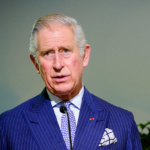Undercover cops: political or commercial?
The reaction to the news that an undercover police officer, Mark Kennedy, spent seven years infiltrating green campaign groups has been genuinely fascinating.
Quite understandably there’s been the strong sense of betrayal from those duped by him. If someone has lived along side you for such a long time and yet nothing was as it seemed it’s enough to make you wonder who and what you can believe in and rely on. After all, society is founded on trust. When that breaks down there’s not much left to sustain it.
Then there’s the broader concern that not just Kennedy but at least three officers were assigned to climate protest and related groups.
On the one hand we’d expect the police to keep tabs on a whole range of activists right across the political spectrum to make sure that they don’t pose a threat to democracy and aren’t planning violence.
On the other hand the case of the 114 people arrested over a planned demonstration at the Ratcliffe-on-Soar power station has led many to seriously question the judgement of the police. Given that they patently weren’t planning violence and had absolutely no interest in undermining our democracy even the conservative press has scratched its head and wondered why so much effort, and expense, was incurred when there was no obvious threat.
Of course climate groups commit trespass and stage blockades and the like, but so, from time to time do The Ramblers, WI groups and even the Countryside Alliance. When the chips are down and wrong is being done we Brits knot a hanky, pack a picnic and invade somebody’s lawn until they agree to stop being so downright unreasonable. Sensible police forces send down a van of bobbies whose main aim is to get off down the pub as early as possible and a senior officer who can make a calm judgement about how long the ‘infuriateds of Leamington Spa’ reasonably need to make their point before politely suggesting they might like to get home and watch ‘Strictly’.
And just in case you think that assessment of the Ratcliffe group is overly generous let me refer you to Jonathan Teare, the judge who sentenced 18 of them last month:
“You are all decent men and women with a genuine concern for others, and in particular for the survival of planet Earth in something resembling its present form,” he said in his sentencing address.
“I have no doubt that each of you acted with the highest possible motives. And that is an extremely important consideration.”
You see – it could have been the Ramblers or the WI (although perhaps not those more outré Countryside Alliance types who can’t be doing with new fangled ways like television and do unpleasant things to badgers for entertainment instead).
So it’s hardly surprising that disparate commentators have wondered how was it that the police pursued the Ratcliffe prosecutions for 20 months, continuing even after being unable to persuade a judge that the accused were anything more than a decent bunch of people driven to break the law (in ways that were no danger to persons or property) because they were concerned about climate change?
Others have wondered why the absence of similar prosecutions of English Defence League types; people whose modus operandi seems to broadly consist of assembling as many thugs as possible, marching them into ethnic minority areas and causing the maximum amount of fear.
Still more concern has been expressed at the possibility that the undercover police officers may have acted as agents provocateur. Did the police, not satisfied with finding a group of committed but fundamentally non violent activists, decide they wanted to discredit climate change campaigners through entrapment? Might this, some have wondered, be the police developing their own political agenda?
Or was the motivation a financial one? According to Simon Jenkins in The Guardian, Kennedy’s outfit, the National Public Order Intelligence Unit, reports to a committee of Acpo, the Association of Chief Police Officers.
Acpo now operates as a private business, subcontracted to by the government to provide security services and which also makes money from selling surveillance data to corporations.
As Sir Simon puts it: “Acpo was once a liaison group. But, like all bureaucracies, it has grown. It now runs its own police forces under a police chief boss, Sir Hugh Orde, like a British FBI. It trades on its own account, generating revenue by selling data from the police national computer for £70 an item (cost of retrieval, 60p). It owns an estate of 80 flats in central London. While the generous logistical support it offered the greens was doubtless gratis, we do not know if E.ON UK, the operator of Ratcliffe-on-Soar power station, paid for security intelligence from Kennedy.”
Jenkins floats the idea, while simultaneously downplaying it, that Acpo might be overstating the threat from Green campaigners in order to wring more money from the government.
I think there’s quite possibly a simpler explanation. There is a genuine threat from green campaigners, not to national security or public wellbeing but to the bottom line of corporations in sectors from energy to chemicals to arms and aerospace; the very businesses the green and anti-war movements seek to hold to account.
If one was to set up an organisation selling data on activists, both left, right, Islamic or green, what would be the obvious market? Simple; you go for the customers with the most money and the most to lose. Corporations that feel threatened by campaigners also have the means to pay for the services of those who monitor their activities and even to commission those who proactively work to discredit and undermine them.
In contrast there’s a far smaller market for information on the far-right or Islamic militants. Both may constitute a threat to democracy but there’s far less money in democracy than in armaments or pharmaceuticals. The primary buyers of security information on anti-democratic groups are governments and government budgets the world over are under pressure.
So if we are indeed witnessing the growth of a market in domestic security information might that market now be skewing the focus of security agencies away from violent extremists and towards those who threaten business interests? That is the really big question the Kennedy case raises, for if that were to be the case the implications for our collective security and for our democracy would be extremely serious.
This article first appeared at The Headstrong Club.




“political or commercial?”
In this day and age, what’s the difference?